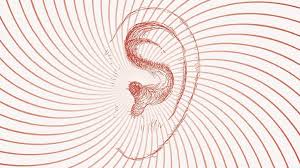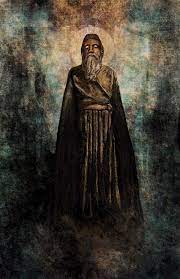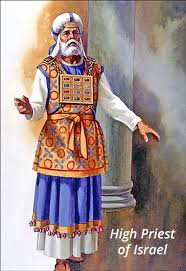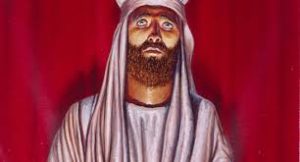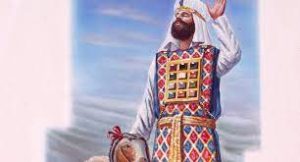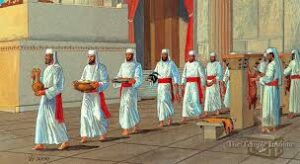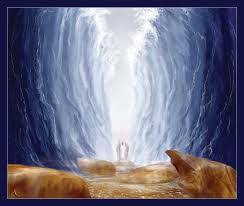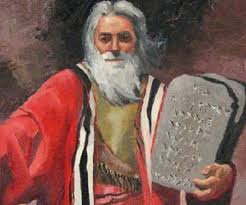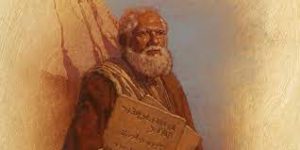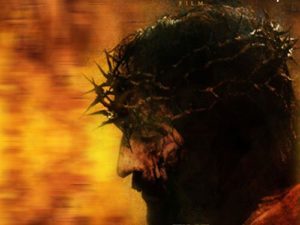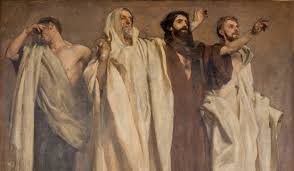Bc – We Have This Hope as an Anchor for the Soul 6: 9-20
We Have This Hope as an Anchor for the Soul
6: 9-20
We have this hope as an anchor for the soul DIG: How does the author encourage his readers so that what they hope for could be fully realized? Is it possible to lose your salvation? What is your responsibility in ministering to the Body of Christ? What effect did God’s promise and oath have on Abraham’s descendants? What kind of illustration can Abraham provide for someone today? What were some of the ways that Isra’el was to be God’s channel of blessing to the rest of the world? What is the anchor for the soul? Why is it important?
REFLECT: How would you describe your spiritual appetite right now? Just nibbling? A good meal is nice now and then? I’m famished for all I can get? Why? When have you been spiritually dull? What got you going again? Where in your life does trusting in YHVH come the hardest? Easiest? Why? What promises of ADONAI are your anchors?
After the severest of warnings, comes the most loving of appeals. The writer was earnestly hoping that the unbelievers he so forcefully had been warning (to see link click Ag – The Audience of the book of Hebrews) would not fall away – that they would not apostatize. It is clear that the writer is differentiating between the believers and the unbelievers among his readers, and is using the saved as examples for his unsaved readers to follow.149 He was convinced that his fellow believers in the congregation had all the true marks of salvation.
First, he gives a brief word to the believers who are to be imitated. Now even though we speak this way, these fearful warnings do not apply to you. Beloved, we are confident of better things in your case – the things that have to do with salvation (6:9). He calls the saved among them, beloved. It was if the writer was saying, “These warnings to apostates, or potential apostates, are put in this letter to you because these people are in your midst” (see the commentary on The Life of Christ Ev – The Parable of the Wheat and the Weeds). The word confident (Greek: pepeismetha) is in the perfect tense, meaning a past action with continuing results. In other words, their ministry in congregation of God showed that the Ruach ha-Kodesh had produced fruit in their lives, and that proved they were truly born again. The word better is one of the key words in Hebrews, and the author uses it eleven times to compare Messiah and His reign with what there was before.
The entire fifth and sixth chapters of Hebrews are devoted to the things that have to do with salvation. But the particular ones mentioned here are those that contrast the warnings of unbelief mentioned in 5:11 to 6:5. For example salvation is not seen in infancy by maturity, not milk but solid food, not inexperience in righteousness by perfection in righteousness, not repentance in dead works by repentance of sin and belief in Yeshua Messiah for eternal life. The things that have to do with salvation are positive, not negative. They are not seen in the external trappings of ceremonial religion, but internal transformation, a new life, born again. The things that have to do with salvation don’t come from repeated sacrifices, but from one perfect, complete sacrifice of Jesus Christ. They do not focus on the milk of the TaNaKh, but on the blessed hope (Titus 2:13), not just on being enlightened, but on being made new, not just on tasting salvation but feasting on it, not just being around when the Ruach ha-Kodesh is around, but having Him live inside you, not just getting a taste of God’s word, but drinking and eating it, not just seeing the Lord’s miracles, but being one. These are the things that have to do with salvation.150
God is not unjust. He will not forget your work in the kingdom of God and the love you have shown Him as you have helped His people, and continue to help them (6:10). As believers, our works do not what save us, but they are the evidence of salvation (James 2:14-26). God is not so unjust and insensitive that He fails to see the works of love His beloved children perform. He clearly sees the fruit of our righteousness. The one who overcomes the world (First John 5:4-5) will be dressed in white. I will never blot out the name of that person from the book of life, but will acknowledge that name before My Father and His angels (Revelation 3:5). The book Jesus is referring to is the book of life, or the names of all those who were ever born (Psalm 69:28; Revelation 3:5, 13:8, 17:8, 20:12, 20:15, 21:27). If a person dies unsaved, his or her name is blotted out of the book of life. Those who are saved have their names retained in the book of life. In Exodus 32:32-33, Moses asked that if the Lord would not forgive the sins of the nation, would He blot Moses’ name out of the book of life, taking away his salvation rather than Isra’el’s. The Lamb’s book of life (Revelation 21:27), on the other hand, contains all those who have been born again, and therefore, it is impossible to be blotted out in that book. This promise assures all believers in every age, of their eternal security.
We serve others in the congregations of God by ministering with our spiritual gifts (Romans 12:3-8; First Corinthians 12:9-11; First Peter 4:10-11). But much of our service to one another is simply part of every believer’s responsibility. The proof that the Hebrews addressed in 6:9-10 were true believers was their loving, faithful, and continuing ministry to each other. If we love our Lord, we will serve each other. We cannot say we love God and, at the same time, have no use for our brothers and sisters in the faith: Anyone who claims to be in the light but hates a brother or sister is still in the darkness (First John 2:9). A few chapters later, the author states the same truth even more strongly: Whoever does not love does not know God, for God is love (First John 4:8). Finally, in the last chapter, he summarizes the truth: Everyone who loves the Father, loves His children was well (First John 5:1b).
Then he once again addresses the unbelievers, those who had made some sort of flimsy profession of faith but were in imminent danger of falling back into Judaism and losing their opportunity for salvation forever. We want each of you to show this same diligence to the very end, so that what you hope for may be fully realized. We do not want you to become lazy, but to imitate those who through faith and patience inherit what has been promised (6:11-12). The hope was then extended to them to become imitators of the true believers just described and to step over the line from knowledge to faith. It was if the writer was saying, “Take a look at these true believers. My desire is that every one of you could have the same assurance of salvation. We don’t want you to fall away and lose all hope.” There is no hope apart from Jesus Christ. He is the blessed hope (Titus 2:13).
Diligence can carry the idea of eagerness or haste. The basic idea was that the unbelievers he was addressing should not waste any more time and put their faith in Messiah as High Priest today. Once someone hears and understands the gospel, stepping over the line from knowledge to faith should not be a long drawn out process. All it takes is an act of obedience. Salvation is an instantaneous experience and should not be postponed (see the commentary on The Life of Christ Bw – What God Does For Us at the Moment of Faith).
The Jewish unbelievers’ laziness was a terrible barrier to their being saved. Lazy is a translation of the same Greek word (nothros) that is rendered dull earlier (see Ba – You Have Become Dull of Hearing). Just as they were dull in their hearing, they were lazy in their believing. They had not consciously rejected the gospel; but by not accepting it they had placidly rejected it. There are only two kinds of spiritual food. There’s devil’s food and there’s angels food . . . and if you aren’t eating one – you’re eating the other. There is a time for careful deliberation, but not when you know the right thing to do and have no guarantee of how long you will have the opportunity to make it. The time to accept Christ is never tomorrow, it is always today: Now is the time of God’s favor, now is the day of salvation (2 Corinthians 6:2). Before it was too late, they needed to imitate true believes.151
Probably the most outstanding example of trusting YHVH in the TaNaKh is Abraham. In fact, he is called the father of all who believe (Romans 4:11; Galatians 3:7), and it is Abraham that the writer now sets before his readers as a model of faith.
As we have seen, the writer to the Hebrews had urging the Jews to completely abandon the Levitical sacrificial system and commit themselves to Christ as their great High Priest and once-for-all-time Sacrifice. But the author says, in very clear terms here (and even more clearly in Chapter 11), that faith was the essence of the sacrificial system. When a Jew brought a sin offering for unintentional sin, a guilt offering for known sin, a burnt offering for averting God’s wrath for sin by means of a substitute, a grain offering to restore fellowship with God, or a peace offering as an act of voluntary worship, the offering, any offering, was worthless in God’s sight with out faith because without faith it is impossible to please God (Hebrews 11:6).
Then the writer cites the example of Abraham as an illustration of one of those who through faith and patience inherited the promises of YHVH. In light of Jewish persecution that those intellectually convinced Jews would almost certainly face if they made a commitment to Yeshua Messiah, they are pointed to Abraham. It was as if the writer was saying, “Not only can you look around you at the true believers as examples, you can look to Abraham. Look back at the history that you know only to well.” The father of the Jews is also the father of the faithful. He is the perfect illustration of a man of faith, who, in the midst of adversity, uncertainty, and seeming impossibility, totally trusted in ADONAI for everything. He went so far as to raise a knife to kill his son who alone could fulfill God’s promise- because God had told him to sacrifice his son. Such was his faith in God.152
The hesitating Jews who recognized the truth of the gospel, who had seen miracles performed by the apostles, were still afraid to let go of the dead Levitical system. They were afraid to step over the line from knowledge to faith for fear that He might not be able to save them. And so the Ruach ha-Kodesh encourages them that they can trust YHVH to do just what He says: When God made His promise to Abraham, since there was no one greater for Him to swear by, so “He swore an oath by Himself,” (Hebrews 6:13 quoting Genesis 22:16). Just as surely as ADONAI has kept His promise to Abraham, He will keep His promise to those who trust in His Son. He said: I will surely bless you and give you many descendants (Hebrews 6:14 quoting Genesis 22:17). Did God keep His promise? Yes, there are untold millions of believers around the world today. Ha’Shem has never failed and He never will. He can’t lie or back out of His promises, “The LORD Himself goes before you and will be with you; He will never leave you or forsake you. Do not be afraid; do not be discouraged (Deuteronomy 31:8). That is true for Isra’el and His children of every age.
And so after waiting patiently, Abraham received what was promised (6:15). The word patiently refers back to verse 12; the word received (Greek: epitugchano meaning to hit a marker or reach a point) summarizes the long wait for Isaac. Between the promise that God made to Abraham and the time Isaac was born, twenty-five years had passed. Abraham waited patiently for twenty-five years to receive what was promised. Abraham was a good example to those who were having second thoughts about receiving Christ as their Lord and Savior. While the promises of ADONAI are not always immediate, they are always certain.
The writer now illustrates the security of the divine promise by using the analogy of human practice. Since there was no one greater for Him to swear by, so “He swore an oath by Himself,” for people swear by someone greater than themselves, and the oath confirms what is said and puts an end to all argument (6:13b-16). When Ha’Shem makes a promise, it does two things. First, it stops all contradiction and controversy, and second, it establishes that which is trustworthy. Now, people swear by something greater. Jews swore by the Altar and the Temple. For them, that was supposed to settle the issue. When people swear by something greater, they pledge themselves to fulfill the promise. It is the nature of swearing to appeal to a higher authority. But God Himself is the highest authority, so His Word settles and confirms everything. YHVH swore the same oath that people swear. Yet, ADONAI could not appeal to a higher authority, so “He swore an oath by Himself.”153
Because God wanted to make the unchanging nature of His purpose very clear to the heirs of what was promised, He confirmed it with an oath (6:17). The word promise is preceded by the definite article in the Greek text, pointing to a definite, particular promise defined in the context. Of course YHVH didn’t need to take an oath. His word is every bit as good without the oath – as ours ought to be (Matthew 5:33-37). But to accommodate to the weak faith of people, God swore His promise by Himself. Since His promise is already unbreakable, His pledge did not make His promise any more secure.
I believe the pledge (Greek: arrabon) of ADONAI’s oath is the Spirit of God. When you believed, you were marked in Christ with a seal of ownership, the promised Holy Spirit, who is a deposit guaranteeing our inheritance until the redemption of those who are God’s possession (Second Corinthians 1:22; Ephesians 1:13b-14). In modern Greek, the same basic word for pledge used by Sha’ul means an engagement ring, the promise of marriage. It was as if the Ruach was saying to those hesitating, unbelieving Jews, if you will only believe that Yeshua is who He says He is, and step over the line from knowledge to faith, I will come into your heart as a deposit, guaranteeing your inheritance in Christ.”
God did this so that, by two unchangeable (Greek: ametathetos) things in which it is impossible (Greek: adunatos) to lie (6:18a). The two unchangeable things are God’s promise and His oath. First, the promise given to Abraham in Genesis 12 was unchangeable. When Abraham was seventy-five years old, YHVH promised him a son. Second, the promise with an oath was given when Abraham was ninety-nine years old. Both the promise and the oath are unconditional guarantees of the covenant. The term ametathetos was used in relation to wills. Once properly made, a will was ametathetos, unchangeable by anyone but the maker. Ha’Shem has declared His promise and His oath to be ametathetos, even to Himself. They cannot be taken back or altered. It’s as if God is saying, “You’re secure. Come to Christ; there’s nothing to fear. I’ll hold on to you; I’ll never let you go.” Our security isn’t in our never letting go of God, but in His never letting go of us.154
We who have fled for refuge to take hold of the hope set before us may be greatly encouraged (6:18b). The word refuge is a reminder of the concept of the cities of refuge found in the TaNaKh (Numbers 35; Deuteronomy 19; Joshua 20). Just as a man would flee to a city of refuge, those Jews who had not yet made a decision to follow Messiah needed to flee to Him because He was their only hope. Abraham patiently endured and the promise was fulfilled. Those unbelieving Jews would have the same results if they only believed. We will never know if God can hold onto us until, in desperation, we run to Him for refuge. The hope set before us is Jesus Christ and the gospel He has brought (First Timothy 1:1).
The hope that Hebrews describes is critical because it allows the believer to enter the inner sanctuary where ADONAI dwells. The vast body of Jewish law, known as halakhah (the way), or the Oral Law (see the commentary on The Life of Christ Ei – The Oral Law), can never usher anyone into the presence of YHVH. Only one who belongs to the Way (Acts 19:2) makes such communication possible. To all who have ever known the frustrating burden of attempting to enter by any other means, the words of Hebrews are a comfort: We have this hope as an anchor for the soul, firm and secure (6:19a).155

This hope is the anchor that enters the inner sanctuary behind the veil, where our forerunner, Jesus, has entered on our behalf (6:19b-20a). Yeshua is in the Most Holy Place in the heavenly Tabernacle. In the Dispensation of the Torah (see the commentary on Exodus Da – The Dispensation of the Torah), atonement was made once a year by the high priest. However, in the Dispensation of Grace (see Bp – The Dispensation of Grace), the atonement was made once for all time by Messiah’s sacrifice on the cross. This High Priest is the Rock of Salvation into which the anchor of the believer’s soul is fastened. Therefore, our anchored soul is, in the mind of God, already secure behind the veil. When Jesus entered the heavenly Most Holy Place, He did not leave after the sacrifice as did the Aaronic high priests, but He sat down at the right hand of HaG’dualh BaM’romim, the Majesty of heaven (Hebrews 1:3e CJB quoting Psalm 110:1a CJB).
The Aaronic high priest arrayed in his gorgeous robes, would enter the sanctuary, wearing on his shoulders twelve onyx stones upon which were inscribed the names of the twelve tribes of Isra’el, and upon his breastplate, similar onyx stones with the names of the twelve tribes of Isra’el upon them. Thus, he would carry upon the shoulders of his strength and upon the heart of his love, the righteous of the TaNaKh into the presence of ADONAI. Even so, our heavenly High Priest carries on His shoulders of omnipotence and upon the heart of His infinite love, those who believe in Him. Thus does the writer encourage the unsaved readers to put their faith in the Sacrifice of the B’rit Chadashah, the Messiah, rather than going back to the Levitical sacrifices that were set aside by God at the cross.156
He has become our Great High Priest (Hebrew: Cohen Rosh Gadol) forever, in the Order of Melchizedek (Hebrews 6:20b quoting Psalm 110:4). Specifically, the Son remains forever as Guardian of our souls. Such absolute security is almost incomprehensible. Not only are our souls anchored behind the impregnable, indestructible heavenly sanctuary, but our Savior, Yeshua Messiah, sits at the right hand of God interceding for us (Romans 8:34; Ephesians 1:20; Colossians 3:1). How can our security be described as anything but eternal (see the commentary on The Life of Christ Ms – The Eternal Security of the Believer). Truly we can trust YHVH with our souls.
The author then returns to the line of thought that he left at 5:10 in order to exhort his readers to diligence. He was also preparing the groundwork for his coming position on the Order of Melchizedek and the priesthood of Yeshua (see Bj – The New Priesthood is Unchangeable).157
Anchors are a clear and familiar image of security, yet there is something unique about the Anchor we see here. Every other anchor goes down into the sea to a place unseen to hold us secure, but this One goes up to heaven where by faith we can see the inner sanctuary behind the veil. What a powerful portrayal of hope for the believer. For others, hope is only wishing. Wanting but not having. And the failure of wishful hoping leads so many people into despair and depression. Believers want many things also. We want blessing, we want peace, and we want security. But unlike the hope of the world, which goes nowhere and has no anchor, our hope in Christ goes before us into heaven, where it is anchored to the unchangeable nature of His purpose and the oath He has sworn. We have a lifeline of salvation, so to speak, that nothing can break or destroy, so that we can be certain of arriving safe in the harbor of heaven.
Forerunner is yet another of the nautical terms used in Hebrews (6:19b). The Greek word prodromos appears nowhere else in Scripture, but has to do with a familiar scene in the ancient world. The Greek harbors were often cut off from the sea by sandbars, over which the larger ships dared not pass until the full tide came in. So a lighter vessel, a forerunner, took the anchor and dropped it the harbor. From that moment the larger ship was safe from the storm, although it had to wait for the tide before it could enter. Therefore, because Messiah, our forerunner, has entered heaven itself, He Himself is the pledge that we too, will one day enter the harbor of our souls and the very presence of YHVH. Can unforeseen circumstances break the line to this Great Anchor? No. ADONAI is greater than them all, and His oath shall override every obstacle. Believers are safe because God’s oath and promise, secured by the finished work of Messiah on the cross.158




